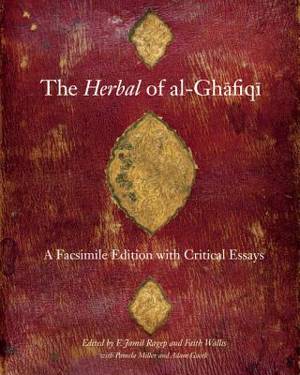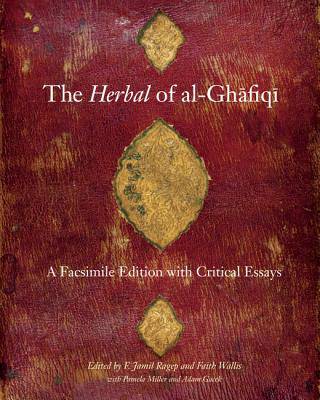
Je cadeautjes zeker op tijd in huis hebben voor de feestdagen? Kom langs in onze winkels en vind het perfecte geschenk!
- Afhalen na 1 uur in een winkel met voorraad
- Gratis thuislevering in België vanaf € 30
- Ruim aanbod met 7 miljoen producten
Je cadeautjes zeker op tijd in huis hebben voor de feestdagen? Kom langs in onze winkels en vind het perfecte geschenk!
- Afhalen na 1 uur in een winkel met voorraad
- Gratis thuislevering in België vanaf € 30
- Ruim aanbod met 7 miljoen producten
Zoeken
The Herbal of Al-Ghafiqi
A Facsimile Edition with Critical Essays
F Jamil Ragep, Faith Wallis
Hardcover | Engels
€ 249,95
+ 499 punten
Omschrijving
"Herbals" - collections describing plants used for medicinal purposes - were among the ancient and medieval world's most valued scientific texts, synthesizing a vast treasury of medical learning to facilitate scientific edification for scholar, bibliophiles, or practical consultation by physicians. Abu Ja?far al-Ghafiqi (d. ca. 1165 CE) lived in the Arab-Islamic zone of the southern Iberian peninsula called al-Andalus, a land of many cultures, religions, and languages. His Herbal reflects the diverse milieu in which he lived, drawing from ancient Greek sources like Dioscorides and Galen as well as over thirty other works from India as well as the Hellenistic and Islamic worlds. The manuscript reproduced in this edition was purchased in 1912 by Sir William Osler and is now housed in the Osler Library of the History of Medicine at McGill University. It has entries for herbal, mineral, and animal-derived drugs, illustrated by almost 400 coloured, hand-drawn images of plants and animals. A glossary of over 2,000 secondary entries provides synonyms in Greek, Sanskrit, Syriac, Persian, Berber, Old Spanish, Latin, Coptic, and Armenian, reflecting the international character of medicine and pharmacy at the time. Essays by eminent scholars discuss the physical features and history of the manuscript, the philological complexity of the text, al-Ghafiqi's sources, the Andalusian and larger global contexts of the Herbal, and the illustrations accompanying the text. A remarkable document, The Herbal of al-Ghafiqi will be a cherished addition to the library of anyone interested in the history of pharmacological science or in the history of the Islamic world.
Specificaties
Betrokkenen
- Auteur(s):
- Uitgeverij:
Inhoud
- Aantal bladzijden:
- 736
- Taal:
- Engels
Eigenschappen
- Productcode (EAN):
- 9780773544758
- Verschijningsdatum:
- 28/11/2014
- Uitvoering:
- Hardcover
- Formaat:
- Genaaid
- Afmetingen:
- 216 mm x 279 mm
- Gewicht:
- 2898 g

Alleen bij Standaard Boekhandel
+ 499 punten op je klantenkaart van Standaard Boekhandel
Beoordelingen
We publiceren alleen reviews die voldoen aan de voorwaarden voor reviews. Bekijk onze voorwaarden voor reviews.









